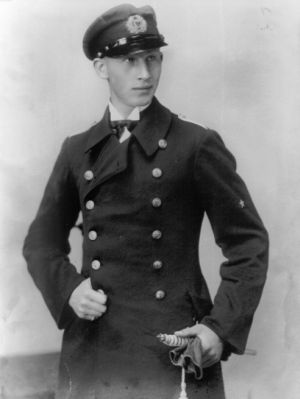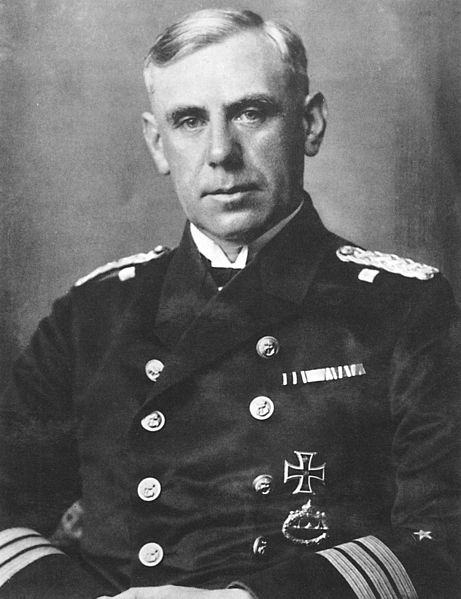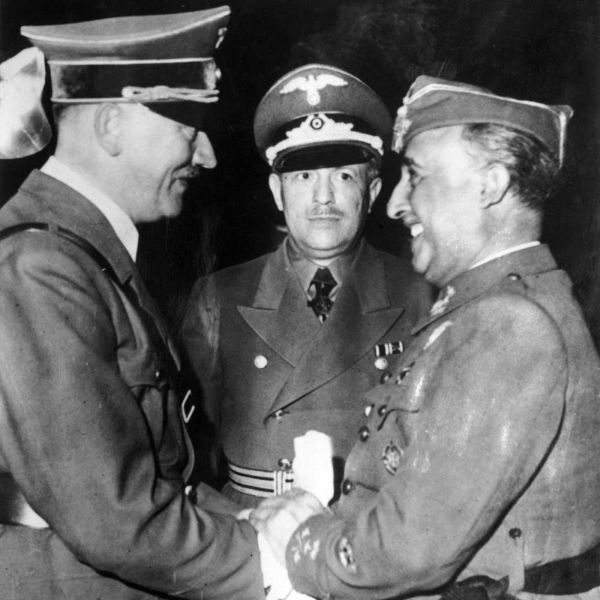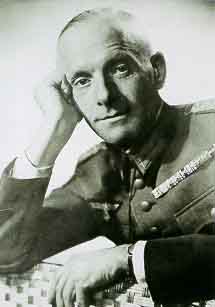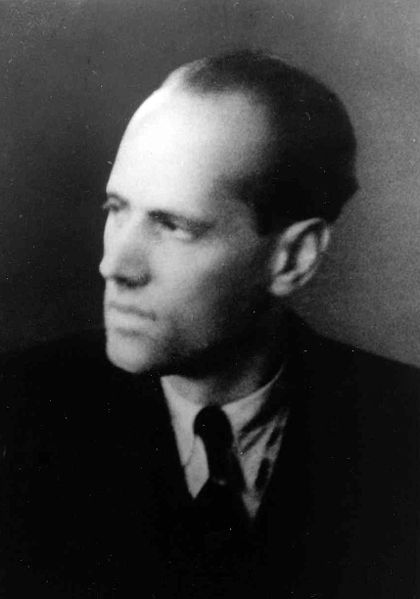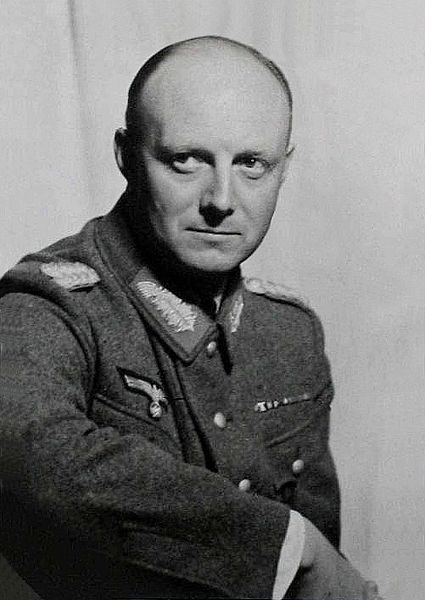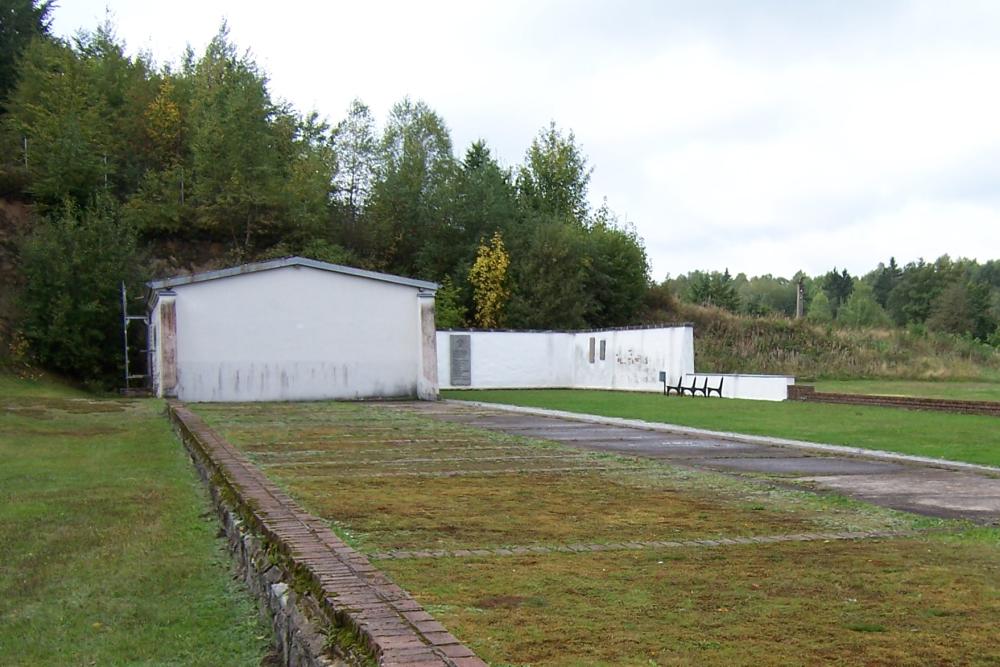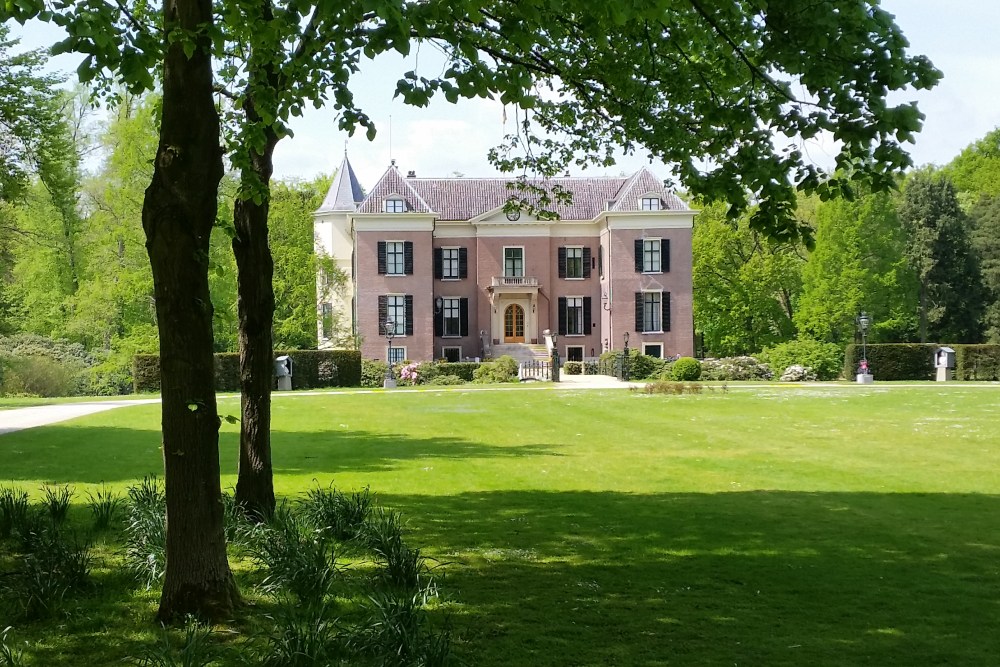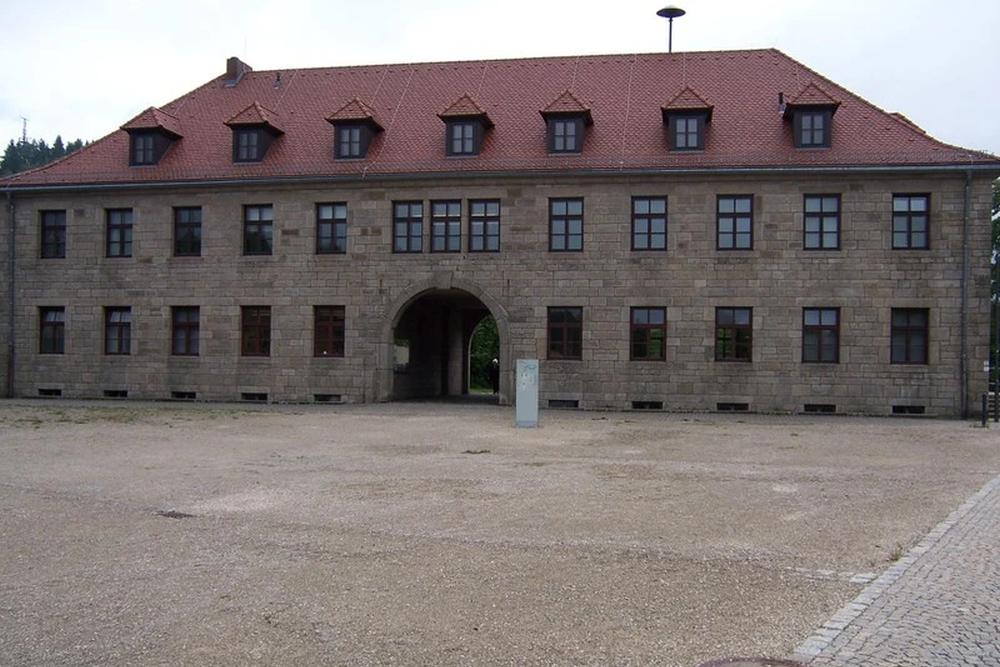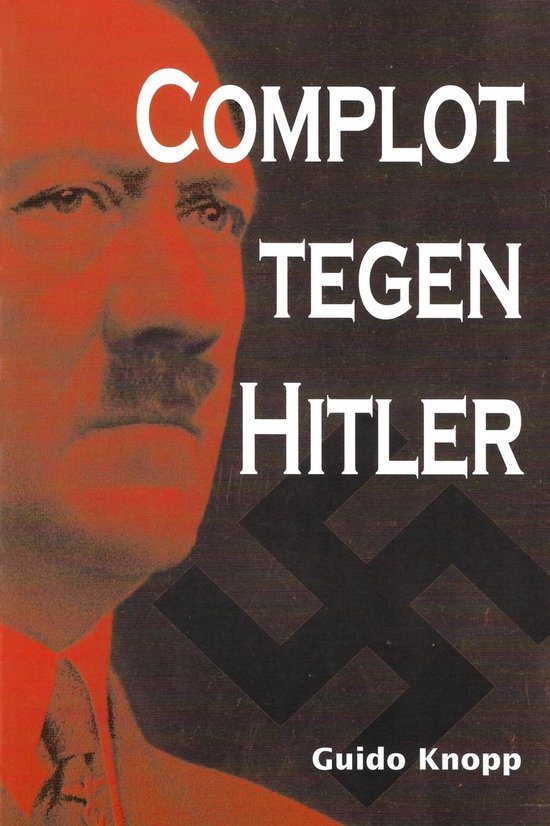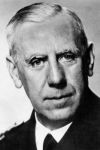Introduction
Wilhelm Canaris is one of the most remarkable persons of the Third Reich. As head of the German military counterespionage service, the Abwehr, he made a considerable contribution to the successes of the German armed forces, especially at the beginning of the Second World War. However, he was also one of the first high ranking military who recognised the danger of Nationalsocialism and he was involved in various attempts at a coup d’état against the Adolf Hitler regime. This article is a biography of the person who showed two entirely different sides and whom one justifiably may call a born spy.
Definitielijst
- Abwehr
- Term used for the German military intelligence unit during the WW1 and WW2. From 1935 onwards under command of Admiral Wilhelm Canaris. The organisation often came into conflict with other secret services such as the SD and the Gestapo. During World War 2 under Canaris frequently a source for conspiracies against the Nazi regime until in 1943 a major conspiracy by a number of prominent members of the Abwehr was discovered and the Abwehr was placed under command of Himmler. After the assassination attempt on Hitler in 1944, Canaris was discharged and the Abwehr was dissolved. The conspirators and Canaris were prosecuted and in 1945 they were executed atc oncentration camp Flossenburg.
Images
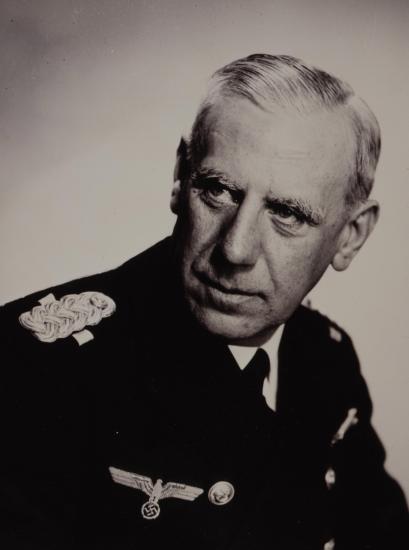 Chief of the Abwehr Wilhelm Canaris in 1938 Source: DHM.
Chief of the Abwehr Wilhelm Canaris in 1938 Source: DHM.Childhood and early naval career
Childhood and study
Wilhelm Franz Canaris was born on January 1st, 1887, in Aplerbeck (today a part of Dortmund). He descended from a family of engineers, lawyers and merchants. His Lutheran parents were the engineer Carl Canaris and Auguste Popp. He had two brothers and a younger sister. Because of the work of his father in the steelindustry, first at the Aplerbecker Hütte and later on at the Niederrheinsche Hütte, the family moved house frequently. Wilhelm grew up in luxury. His parents owned a country house with its own park and tennis court in Duisburg, where they lived from 1892 onwards.
From 1898 onwards he attended the local Steinbart-Gymnasium (secondary grammar school). He was driven to school by carriage every day. He was one of the most intelligent pupils of his class, but he had few friends. This was mainly because he choose this himself. Contempories describe him as a reserved, uncommunicative person who preferred to live in isolation. Wilhelm was keen on spying from his early days. It seems that as a child he was already interested in experiments with invisible ink and he gave himself aliases. The other kids at school called him Peeping Tom sometimes.
After he had seen a statue of the Greek admiral and freedom fighter Constantin Kanaris (1795 – 1877; no relative by the way) during a visit to Greece in 1902, Wilhelm developed a keen interest in the navy. He decided therefore that he wanted to attend the navy academy in Kiel after having graduated from his Gymnasium.
Navy training
Father Canaris accepted his son’s choice son to become a career officer, but he did not think the navy was the correct unit for his son to serve in. In his opinion, Wilhelm would be better placed with the noble cavalry, rich in tradition. Under pressure by his father, Wilhelm therefore reported at the Königlich Bayerische 1. Schwere-Reiter-Regiment "Prinz Carl Von Bayern". Young Wilhelm was an able horseman, so the cavalry might well offer him a good future. The navy kept tugging at him however and after his father had died in 1904, he was able to convince his mother to let him apply to the Seekadetten-Annahme-Kommission (sea cadet entry commission) in Kiel. He was accepted without any problems, certainly after it appeared that his mother could affort the required 4800 Reichsmark for the training.
After having passed his Gymnasium final examinations with good marks, Wilhelm Canaris reported to the Kaiserliche Marine (Imperial Navy) in Kiel. The education started with a brief infantry training, followed by a schooling of one year on the sailing ship SMS Stein.The education was concluded with 18 months theoretical training at the Naval Academy. He did especially well in the latter aspect but the physical part of the training caused him considerably more trouble. He had never been a sportsman and in the beginning it cost him a lot of effort to keep up with the others at physical exercises. Canaris however demonstrated a strong willpower and kept it up. On April 7th , 1906, he was promoted to Fähnrich zur See. At the conclusion of the education he was judged to be "theoretically very gifted and with an iron dilligence". He was posted to the light cruiser SMS Bremen, which soon after departed for a flag showing trip to South and Central America.
During this trip Canaris started to study Spanish, a language he soon mastered. Apart from Spanish Canaris spoke English, French and a little Russian as well. He utilized his linquistic knowledge for instance to set up a network of trustees (V-men) in Argentina and Brazil on orders from the captain of the Bremen. These V-men provided intelligence to the navy and especially during the First World War Canaris would greatly benefit from these persons.
Naval career
On September 28th, 1908 Wilhelm Canaris was promoted to Leutnant zur See, he also was appointed adjutant of the captain of the Bremen. In this position he was also involved in the negotiations with Juan Vicente Gómez, the president of Venezuela. An international blockade had been proclaimed against this country after the former president, José Cipriano Castro Ruiz had nationalised a number of international companies. Subsequently Gómez had taken over power by means of a coup d’état in that politically very unstable country. During the following negotiations, aimed at lifting the blockade, young officer Canaris made such a good impression that Gómez awarded him the Order of Bolivar 5th Class.
In January 1910 Canaris was transferred to the Nordseeflottille. Initially he was posted on destroyer SMS V162 as second officer of the watch and subsequently on the SMS S145 as a company and watch officer. The switch from the subtropical climate in South America to the cold and wet weather in the North Sea did not suit him at all. In the south he had contracted malaria and here he contracted pulmonary tuberculosis. This caused him to take half a year off in order to recuperate. This did not prevent him from being promoted to Oberleutnant zur See on August 29th , 1910.
After his recovery, Canaris was posted on a light cruiser in December 1911, this time the SMS Dresden. In 1913 this ship was dispatched to the eastern Mediterranean in order to protect the German interests during the second Balkan war (which lasted from June 29th , till August 10th , 1913). On return to her home port she ship was dispatched on a voyage almost immediately (and unable to have the necessary maintenance carried out). This time the presence of the ship was required in the Eastern waters off the Mexican coast. At that time civil war was raging in that country and the Dresden was deployed in the evacuation of foreigners from Vera Cruz, whose safety could no longer be guaranteed. For having taken 2000 American citizens to safety, the vessel would be decorated by president Woodrow Wilson.
It was intented that the cruiser would be relieved on July 27th , 1914. Due to the tense political situation in Europe and the First World War about to break out, the ship could not depart. Hence, the light cruiser remained berthed in the harbor of Port-au-Prince on Haïti. After the declaration of war by Germany on August 1st , 1914, the Dresden was ordered to start a "cruiser war" in the Atlantic Ocean; this entailed hunting down Allied merchantmen and navy vessels.
Definitielijst
- cavalry
- Originally the designation for mounted troops. During World War 2 the term was used for armoured units. Main tasks are reconnaissance, attack and support of infantry.
- cruiser
- A fast warship with 8,000 – 15,000 ton displacement, capable to perform multiple tasks such as reconnaissance, anti-aircraft defence and convoy protection.
- destroyer
- Very light, fast and agile warship, intended to destroy large enemy ships by surprise attack and eliminating them by using torpedoes.
- First World War
- Took place from 1914 till 1918 and is also named The Great War. The conflict started because of increased nationalism, militarism and neo-colonialism in Europe. Two alliances battled one another during the 4-year war, which after a dynamic start, resulted into static trench warfare. The belligerents were the Triple Alliance (consisting of Great-Britain, France, and Russia; later enlarged by Italy and the USA, amongst others) on the one hand and the Central Powers (consisting of Germany, Austria-Hungary, Bulgaria and the Ottoman empire) on the other hand. The war was characterized by the huge number of casualties and the use of many new weapons (flamethrowers, aircraft, poison gas, tanks). The war ended in 1918 when Germany and its allies surrendered unconditionally.
- infantry
- Foot soldiers of a given army.
- Regiment
- Part of a division. A division divided into a number of regiments. In the army traditionally the name of the major organised unit of one type of weapon.
Images
 Canaris as a schoolboy, 1905 Source: de.wikipedia.org.
Canaris as a schoolboy, 1905 Source: de.wikipedia.org.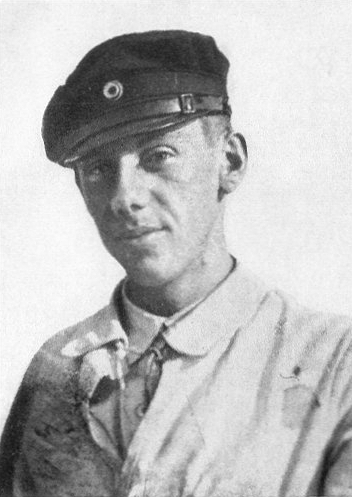 Canaris as a naval cadet, 1905 Source: de.wikipedia.org.
Canaris as a naval cadet, 1905 Source: de.wikipedia.org.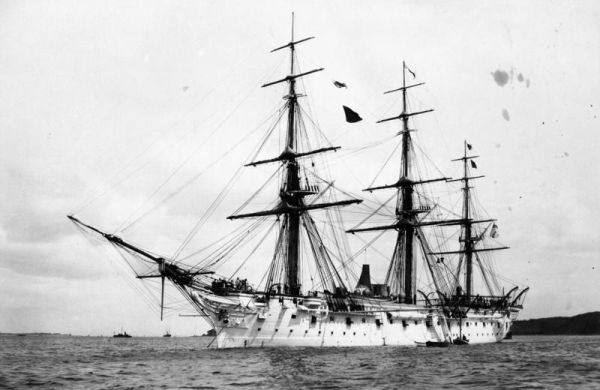 The sailing ship SMS Stein, on which Canaris received one year of training. Source: Wikimedia Commons / Bundesarchiv.
The sailing ship SMS Stein, on which Canaris received one year of training. Source: Wikimedia Commons / Bundesarchiv.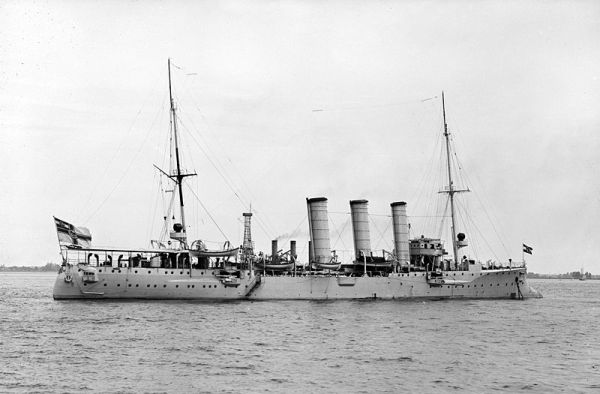 The light cruiser SMS Bremen in 1912, on which Canaris was appointed adjutant of the captain. Source: Library of Congress.
The light cruiser SMS Bremen in 1912, on which Canaris was appointed adjutant of the captain. Source: Library of Congress.Naval Officer and secret agent in the First World War
Aboard the Dresden
The captain of the Dresden decided to proceed to the mouth of the Rio de la Plata, as there were many shipping movements. In the following period the Dresden succeeded in sinking two English freighters.
The Dresden however struggled with a number of serious problems. At the outbreak of war all communication between the Dresden and navy headquarters had been lost. Moreover, the light cruiser only had a limited supply of coal and replenishment was very complicated. The network of V-men of Canaris however offered relief. The V-men were able to provide Canaris with information on a number of important Allied shipping movements and the Dresden could contact a number of German freighters which could provide the necessary provisions to the cruiser also through those V-men.
When Canaris was told that strong British units were approaching, the Dresden sailed to the Pacific Ocean. There the ship joined the squadron of Vizeadmiral Maximilian Graf Von Spee, which consisted of two heavy cruisers (Scharnhorst and Gneisenau) and the light cruisers Nürnberg and Leipzig. On November 1st, 1914, this squadron destroyed the British cruisers HMS Good Hope and HMS Monmouth near Coronel (Chile). Graf von Spee decided, probably having become overconfident by his success, to launch an attack on the British naval support base Port Stanley on the Falklands Islands in the South Atlantic. This was strongly discouraged by the other ships’ commanders, but Graf Von Spee insisted with disastrous consequences. In Port Stanley a strong British squadron, consisting of two battle cruisers HMS Invisible and HMS Inflexible, plus three heavy and two light cruisers was lying at anchor. In the ensuing maritine battle which took place on December 8th , 1914, Scharnhorst, Gneisenau, Leipzig and Nürnberg were all sunk. Only Dresden escaped.
The Dresden succeeded in evading the enemy for the next three months. In that time the ship was able to take in coal from German freighters a few times but she had almost run out of ammunition. On March 9th , 1915, she anchored in Cumberland Bay on Robinson Crusoe Island in the South Pacific. Because the situation of the ship was desperate, the commander asked the Chilean authorities whether the ship could be interned. This was agreed to but it would take a few days before the ship could be seized.
The hiding place of the Dresden however was discovered by the Royal Navy prior to her being seized. On March 14th , 1915, the Dresden was attacked by the British cruisers HMS Kent and HMS Glasgow in violation of maritine law. The commander decided, the situation being what it was, that there was no other option left than to scuttle the ship himself. In order to gain time, Canaris was sent to the Glasgow in order to negotiate with the commander. Meanwhile, aboard the Dresden scuttling charges were placed in position. At 11:15 a heavy explosion occurred and the ship went down.
Internment and escape
The crew of the Dresden was interned on an island near the Chilean town of Concepción. Despite the officers being well taken care of and they were granted much freedom of movement, Canaris refused to accept his fate. He decided to make an attempt to return to Germany.
On 3 August, 1915, Canaris escaped from the island with the help of a local fisherman. Subsequently he travelled by train and on horseback on his own across the Andes to Argentina. The German embassy in Buenos Aires provided him with false identity papers in the name of the Chilean citizen Reed Rosas. Subsequently he travelled as a passenger on the Dutch steamer Frisia to Amsterdam. On October 4th, 1915 he reported back in Hamburg.
Secret Agent
The energetic conduct of the young officer had attracted the attention of the Marine-Nachrichtendienst (Naval Intelligence Service) in the meantime. He was considered a useful re-inforcement of the intelligence service. Canaris accepted the offer.
On 30 November, 1915 he was sent to Spain. His tasks involved setting up a supply system for submarines in the western Mediterranean. He also was to create a network of trustees who could provide the Nachrichtendienst with the necessary information on Allied shipping movements.
Canaris was very successful in his performance. Through a befriended captain of industry he succeeded in having Spanish shipyards build small vessels which were extremely suitable for provisioning submarines. Also he succeeded in channelling exact information about the British naval base in Gibraltar to navy headquarters.
In the long run however Canaris could not derive satisfaction from his intelligence work any more and so he requested to be transferred to the torpedo units. This request was also founded on the fact that the French secret service had tracked Canaris down and that they were keeping a watchful eye on him. It is also assumed that the British secret service made a murder attempt on the intelligence officer but hardly any details about this are known.
In September 1916 Canaris returned to Germany aboard a submarine, after earlier attempts to reach his fatherland by land had failed. He was awarded the Iron Cross first class for his services in Spain. He also was promoted to Kapitänleutnant zur See. On November 28th , 1917, he was given command of his own U-boot, the SM UC 27. Later on he was posted on the SM U 34 as deputy commander. Under his command the U 34 sank three British ships in the Mediterranean in January- February 1918. In May he was put in command of the UB 128 in Kiel. With this submarine he sank a French cargovessel in the Atlantic Ocean. On September 4th , 1918, the UB 128 arrived in Kotor, an Adriatic harbor, in the Austro-Hungarian Empire, today Montenegro. It was intended that this harbor was to be the sub’s home port.
The war proceeded badly for Germany and her allies however. In October Austria-Hungaria was forced to surrender. This forced the German submarines to leave the eastern Mediterranean . With much trouble Canaris succeeded in guiding his boat through the Strait of Gibraltar while several depth charges were launched at her. On November 11th, 1918, Germany capitulated and the First World War ended for Canaris.
Definitielijst
- cruiser
- A fast warship with 8,000 – 15,000 ton displacement, capable to perform multiple tasks such as reconnaissance, anti-aircraft defence and convoy protection.
- First World War
- Took place from 1914 till 1918 and is also named The Great War. The conflict started because of increased nationalism, militarism and neo-colonialism in Europe. Two alliances battled one another during the 4-year war, which after a dynamic start, resulted into static trench warfare. The belligerents were the Triple Alliance (consisting of Great-Britain, France, and Russia; later enlarged by Italy and the USA, amongst others) on the one hand and the Central Powers (consisting of Germany, Austria-Hungary, Bulgaria and the Ottoman empire) on the other hand. The war was characterized by the huge number of casualties and the use of many new weapons (flamethrowers, aircraft, poison gas, tanks). The war ended in 1918 when Germany and its allies surrendered unconditionally.
- Iron Cross
- English translation of the German decoration Eisernes Kreuz.
- squadron
- A military unit in the Belgian navy usually six to eight small ships operating together under one command. The smallest military unit in the Dutch air force of about 350 men. In most countries is the designation of a military unit thesize of a company. It is either an independent unit, such as a battery, or part of a bigger Calvary unit. In the air force it is the designation of a unit of aircrafts.
- torpedo
- A weapon of war. A cigar shaped body fitted with explosives and a propulsion and control mechanism. Intended to target after launch a nearby enemy ship and disable it by underwater explosion.
Images
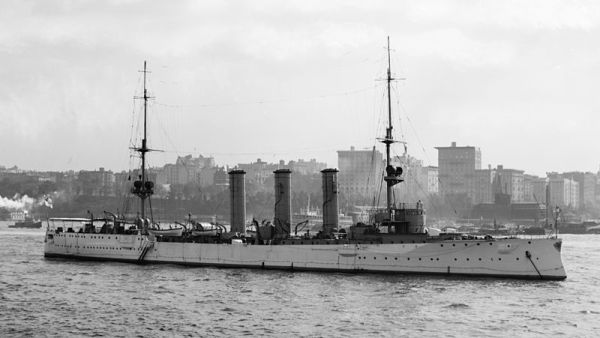 SMS Dresden off the American coast at New York approximately 1909. Canaris served aboard this ship at the outbreak of the First World War Source: Library of Congress.
SMS Dresden off the American coast at New York approximately 1909. Canaris served aboard this ship at the outbreak of the First World War Source: Library of Congress.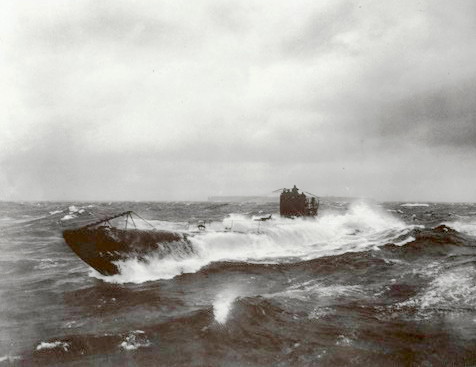 UB-148 in American hands, 1919. Canaris was commander of UB-128 a submarine of the same class at the end of the First World War. Source: U.S. National Archives.
UB-148 in American hands, 1919. Canaris was commander of UB-128 a submarine of the same class at the end of the First World War. Source: U.S. National Archives.Interbellum
In the service of a Freikorps
Wilhelm Canaris was shocked by the situation in which Germany found itself at his return. The Emperor had abdicated, within the navy a mutiny had erupted and a revolution loomed. In a reaction to left wing radical groupings that strived for a new form of a political state after the Soviet example, the so called Freikorps were created; extreme right wing para-military units, mainly composed of former soldiers and officers who tried to suppress the leftists revolts. Canaris joined the Garde-Kavallerie-Schützen-Division, a Prussian army unit from which a large number of Freikorps would emanate. He was appointed liaison officer to staff officer Hauptmann Waldemar Pabst. Pabst characterized Canaris as his very best man. The unit was deployed during the radical-left wing uprising of the Spartakists in Berlin in January 1919 and Canaris found himself in the front lines. The revolt was suppressed and Pabst ordered the two leaders, the communists Rosa Luxemburg and Karl Liebknecht, to be killed. Both were murdered by members of the Freikorps. The whereabouts of Canaris during these executions is unknown. Canaris, by the way, was also a close assocoate of Gustav Noske, the social-democratic governor of Kiel and Reichswehrminister (Minister of Defense) from February 1919.
In Weimar Canaris was also involved in establishing the Reichsmarineamt (state’s naval department), a resurrection of the pre-war Imperial Navy. In 1919 Canaris married Erika Waag. They had two daughters: Eva (1923) and Brigitte (1926), but the marriage was not a happy one.
On Pabst’s initiative, Canaris was installed as a member of the court martial that had to sentence the murderers of Karl Liebknecht and Rosa Luxemburg. It may be clear that a fair trial was out of the question, Canaris being a close associate of the man who had ordered the murders. Partly because of his efforts, most suspects were acquitted and the ones that were convicted received only light sentences. One of them was Oberleutnant Kurt Vogel. Canaris helped him escape from Moabit prison in Berlin on May 17th , 1919. Because of this he had to appear before a court-martial himself but it saw no reasons for conviction.
Canaris remained active on the personal staff of Reichswehrminister Noske. When the order came for the Freikorps to be disbanded, the Kapp-Putsch broke out as a result. This revolt, that was initiated by the navy brigade Ehrhardt, was an attempt at a coup d’état in order to overthrow the Weimar republic. When this coup seemed to succeed, many officers, including Canaris, joined in.
The government called a general strike however and because elsewhere in Germany revolts by soldiers and navy personnel had broken out, the coup perpetrators had to abort their attempt on March 17th from lack of support from the "ordinary civilian population".
In reaction a committee was established that was to find the perpetrators and punish them. Canaris was interrogated by the committee, but they came to the conclusion that he had not been involved in the preparations of the coup and he was acquitted.
Service in the Reichsmarine
On June 24th , 1920, Canaris was appointed staff officer at the Marinestation der Ostsee (naval station on the Baltic) in Kiel. Here he occupied himself with a number of criminal matters. In this capacity he was involved for instance in arms smuggling aimed at obtaining financial means for the navy and he also provided financial and material support to a radical right wing terrorist group Organisation Consul (OC). The OC hoped to destabilize the legitimate Weimar republic by terror. The OC was responsible, among other things, for the assassination on June 14th, 1922 of the liberal Minister of Foreign Affairs Walter Rathenau on 14 June 1922 and of the former Minister of Finance and center politician Mathias Erzberger on August 26th , 1921.
In June 1923 Canaris was transferred again, this time he was appointed first officer on the schoolship Berlin. In this period he got to know Seekadett (sea cadet) Reinhardt Heydrich, later on leader of the Reichssicherheitshauptamt (Head Office of State Security); some sort of friendship developed between these two persons. Heydrich (Bio Heydrich) visited the Canaris family home various times in order to play music with Erika. Meanwhile Canaris found little satisfaction in his work. He regarded the transfer to the Berlin as a punishment and felt bothered by the fact that he had been sidetracked. Apart from that, he suffered from his malaria again which he had contracted before. All this made him submit his resignation to naval headquarters on January 15th, 1924. His resignation was not accepted however as the navy did not want to lose such a talented and gifted officer. Canaris also obtained a promise that he would be charged with more interesting and more challenging work.
On October 4th, 1924, after a secret mission to Japan in the spring and meanwhile having been promoted to Korvettenkapitän, he was transferred to the navy command and posted to the department that was engaged in mobilization. This predominantly clerical work did not give him much satisfaction either.
In January 1925 Canaris was charged with a more challenging task. He was sent to Spain in order to persuade Spanish shipyards to start building submarines of German design. He was also ordered to create a new network of V-men. Canaris successfully completed both tasks and he would spend the coming years mainly in Spain.
Meanwhile however, information had leaked out that Canaris had been involved in supporting the Organisation Consul; it also became known that Canaris had let Kurt Vogel escape. The press called for prosecution of Canaris. It did not come to that but these accusations did not do his career any good.
In order to shield him a little he was transferred to the former battleship Schlesien as first officer and subsequently he was promoted to Fregattenkapitän. But Canaris was compromised further yet. During a number of secret operations in Spain, mistakes had been made for which Canaris was held responsible. When it also became clear that he had been involved in fraudulent transactions by the navy (this department had been massively investing tax money in private enterprises), his role was as good as over.
The chief of the navy, Admiral Erich Raeder, prohibited further allocation of special political assignments to Canaris. On 1 October, 1931, he was nevertheless promoted to Kapitän zur See but his career in the Reichsmarine had arrived at a dead end. His name had been compromised too often; he had repeatedly been connected to obscure matters and the navy would rather dispose of him. This was also made clear by the fact that, after postings such as chief of staff of the Marinestation der Ostsee and as commander of the Schlesien, he ultimately was appointed commander of the fortress Swinemünde on September 29th , 1934; a position which did not amount to much and was more like an honorary function.
Definitielijst
- battleship
- Heavily armoured warship with very heavy artillery.
- brigade
- Consisted mostly of two or more regiments. Could operate independently or as part of a division. Sometimes they were part of a corps instead of a division. In theory a brigade consisted of 5,000 to 7,000 men.
- Freikorps
- German paramilitary units established directly after the Great War by former front soldiers. These groups were often named after their commander. Freikorps formed the basis of the eventual SA or Sturmabteilung.
- mobilization
- To make an army ready for war, actually the transition from a state of peace to a state of war. The Dutch army was mobilized on the 29 August 1939.
- mutiny
- Revolt of soldiers or sailors against the authorities.
- Putsch
- Coup, often involving the use of violence.
- revolution
- Usually sudden and violent reversal of existing (political) the political set-up and situations.
- Weimar republic
- Name for the German republic from 1919 until 1933. Hitler ended the Weimar republic and founded the Third Reich.
Images
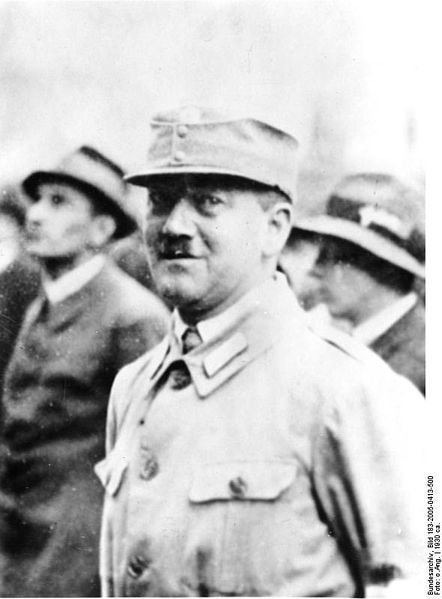 Hauptmann Waldemar Pabst, staff officer of the Garde-Kavallerie-Schützen-Division. Canaris was his `communications officer'. Source: Wikimedia Commons / Bundesarchiv.
Hauptmann Waldemar Pabst, staff officer of the Garde-Kavallerie-Schützen-Division. Canaris was his `communications officer'. Source: Wikimedia Commons / Bundesarchiv.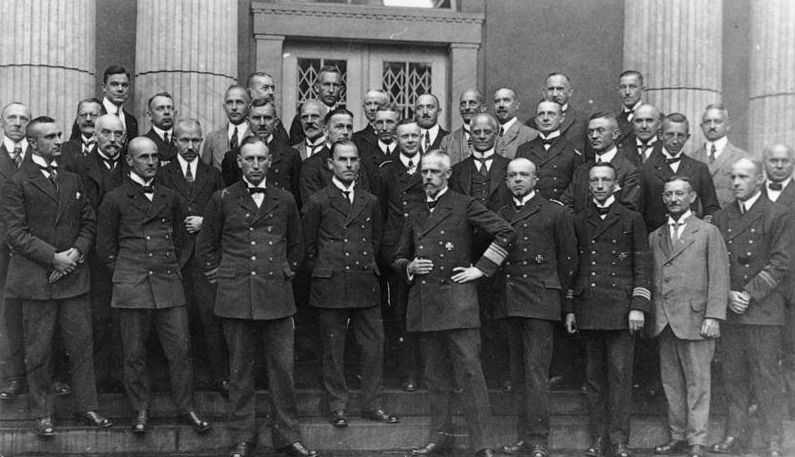 Officers and employees of the Marinestation der Ostsee, 1923. Canaris is standing figures in the back row on the left. Source: Wikimedia Commons / Bundesarchiv.
Officers and employees of the Marinestation der Ostsee, 1923. Canaris is standing figures in the back row on the left. Source: Wikimedia Commons / Bundesarchiv.Transfer to the Abwehr
Chief of the Abwehr
A solution of his precarious situation offered itself when the Chief of the Abwehr, (the espionage and counter espionage service of the German forces, which had been established on January 1st , 1921) Kapitän zur See Conrad Patzig, was summarily dismissed and appointed Canaris his successor. Admiral Raeder actually did not want to approve, but when Patzig threatened to transfer the Abwehr back to the Wehrmacht, Raeder conceded on January, 1st , 1928, the Abwehr and the Marinegeheimdienst (naval secret service) had been merged and the Abwehr ended up under the command of the Reichsmarine. On January 2nd , 1935 Canaris entered office as the new chief of the Abwehr.
During his first months as leader of the Abwehr life was not easy for Canaris. His short appearance (he measured about approx. 5ft 3)) his soft spoken voice with a lisp and his unmilitary appearance made a bad impression. Moreover, Canaris did not possess real qualities of leadership. A member of his personnel described him as: "contradictory in his orders, inequitable, moody and diffuse". Some even said that the new boss was more interested in his two dachshunds he always had with him, rather than in his personnel.
Moreover, Canaris did not like his desk job either, he preferred to "be in the field", as he described the outposts of the Abwehr. He also liked to carry out small espionage assignments himself. During one of his many travels Canaris met the Spanish fascist general Francisco Franco. Both men respected each other and between them they developed a friendly relationship. This was the reason that Canaris was one of the driving forces behind the German military support of the nationalists during the Spanish Civil War (1936 – 1939). The Abwehr also had a large network of spies in Spain and they co-operated closely with the troops of Franco.
Hitler in power
On 30 January, 1933, Adolf Hitler had risen to power in Germany. Quite soon he made it very clear that he did not intend to adhere to the Versailles treaty any longer and that he wanted to expand the armed forces. Under command of Canaris the Abwehr extended strongly. It was necessary because all military organizations had to grow strongly after Hitler had ordered general conscription in 1935. Consequently the Abwehr had to grow accordingly in order to protect the German war effort against espionage by foreign agents. Before Hitler seized power, the Abwehr had just 50 employees, mid 1935 this number amounted to 1,000 and finally it would increase to a force 13.000 strong. Another consequence was that Canaris was promoted to Konteradmiral on May 1st, 1935.
Canaris also succeeded in reaching an agreement with Reinhardt Heydrich, chief of the Geheime Staatspolizei (Gestapo or Secret State Police) and the Sicherheitsdienst (SD or Security Service). The fact is, Heydrich attempted to merge all police and intelligence services under the Schutzstaffel (SS). As for the Abwehr, its various tasks overlapped many of those of both the Gestapo and the Sicherheitsdienst, which caused conflicts. Heydrich and Canaris renewed their relationship and later on they even became neighbors in Berlin. Heydrich again visited the Canaris family frequently and together with his brother and Erika they played music. Canaris also often went horseback riding with Heydrich. Real friends they possibly were not: they deeply distrusted each other and they also had each other spied on, collecting mutually incriminating material.
Canaris was able to expand the Abwehr into one of the most successful espionage services of his day and age. Because of the many agents and V-men that were available to him both in and outside Europe, he had a pretty good picture of the international situation. This enabled him to make a reasonable estimate about the way the international powers would react to Hitler’s political moves. Canaris also aimed at co-operation with and co-ordination within the secret services of Germany’s allies. Before the Three Partite Pact had been signed on September 27th , 1940 (the official collaboration pact between Germany, Italy and Japan, the so called Axis), Canaris already had close ties with the espionage services of these allies. In addition he also had contacts with the Estonian, Lithuanian and Hungarian intelligence services. Canaris also was the driving force behind the "Anti-Kominternpact". He actually had an intense dislike of communism and he considered the Soviet Union to be the biggest threat to the Third Reich.
Relationship with Hitler
In his capacity as chief of the Abwehr, Wilhelm Canaris held many conversations with Adolf Hitler. Certainly during the first years he was very much impressed by the Führer. In the early 30s Canaris saw Hitler, like so many others, as the only man capable to solve the problems of Germany in an efficient way. Especially Hitler’s anti-Communist feelings and his plans for the re-armament of Germany and the recapture of lost German territories did appeal strongly to Canaris. One of the statements of Canaris of those days was therefore: "He who is a good soldier, will also be a good Nationalsocialist". Canaris had been appointed Chief of the Abwehr because he also was known to be pro-Nazi.
In the fall of 1937 however Canaris started to turn away from Hitler. This was caused by the fact that he was increasingly faced with the crimes (the concentration camps and the loss of civil rights) committed in the name of the Nationalsocialist regime. When he talked to people about those doubts that had arisen, they suggested he should resign as leader of the Abwehr. He is said to have answered: "It has become my fate. If I go, Heydrich will come, then all will be lost. I’ll have to sacrifice myself." Whether Canaris actually has spoken these words is not clear. There is only one direct witness who has reported this.
According to most experts (including historian Guido Knopp and publicist Heinz Höhne) the definitive break up between Hitler and Canaris occured after the Blomberg-Fritsch affair in January 1938. Hitler, prompted by men like Heinrich Himmler (Bio Himmler) and Hermann Göring, forced the Minister of War and Commander in Chief of the Wehrmacht, Werner von Blomberg, to resign after it became clear that his wife had once posed for pornographic pictures. Generaloberst Werner von Fritsch, the Commander in Chief of the army, was sidetracked after accusations of homosexuality. Hitler used these events to remove a number of critical officers and to increase the power of the Nazi party within the armed forces. Canaris was shocked by these events that deeply affected the independence of the forces, which he strongly disapproved. As one of the few, he assisted Von Fritsch to refute the (more than obviously) false accusations and that lead to his rehabilitation. Subsequently, Von Fritsch was given a subordinate position as a regimental commander and he would be killed in action in September 1939 during the campaign in Poland.
Partly because he had defended Von Fritsch, Canaris made contact with opponents of the regime like Hans Oster, a former serviceman who worked for the Abwehr since 1931 and Hans von Dohnanyi, a lawyer and former associate of the Reichsgericht (States’ court) in Leipzig who had received a job in the Abwehr on Oster’s initiative. Together with a few others they formed a front against the SS. Canaris also started collecting evidence of the crimes that were being committed by the Gestapo. He channelled this incriminating material to high ranking officers of the Wehrmacht in order to fuel their resistance against the SS. Within Wehrmacht circles, there actually was an aversion against the SS, which was generated by the fear to loose influence to that organization.
In this respect Canaris found support in the fact that the chief of the Oberkommando der Wehrmacht (OKW) (supreme command of the armed forces) Wilhelm Keitel, had appointed him Chef der Amtsgruppe Allgemeine Wehrmachtsangelegenheiten (Chief of the administrative division of the Wehrmacht). In this position, which he combined with his task of chief of the Abwehr, Canaris obtained the new authority to maintain the communication between the Wehrmacht, the OKW, the N.S.D.A.P., the police and the press. After the rehabilitation of Von Fritsch, Canaris tried to get the SS and the Gestapo convicted. He hoped that Generaloberst Walther von Brauchitsch (the new commander in chief of the army) and Ludwig Beck (chief of the general staff of the army) would submit a formal declaration to Hitler, demanding the dismissal of the leaders of the SS and the Gestapo, as co-operation with them had become impossible. For unclear reasons however, the generals refused all co-operation and the initiative evaporated.
As a result of a new reorganization Canaris lost his communication tasks again; these appeared to be too much of a burden to him. A new department in the OKW was formed: the Amt Ausland/Abwehr (department of foreign intelligence). The Abwehr thus became an integral part of the OKW. The authority of the division was also extended: a department was added which would be engaged in psychological warfare and in the support of activities hostile to the state in other countries (Abwehr II). On April 1st, 1938, Canaris was promoted to vice-Admiral.
Definitielijst
- Abwehr
- Term used for the German military intelligence unit during the WW1 and WW2. From 1935 onwards under command of Admiral Wilhelm Canaris. The organisation often came into conflict with other secret services such as the SD and the Gestapo. During World War 2 under Canaris frequently a source for conspiracies against the Nazi regime until in 1943 a major conspiracy by a number of prominent members of the Abwehr was discovered and the Abwehr was placed under command of Himmler. After the assassination attempt on Hitler in 1944, Canaris was discharged and the Abwehr was dissolved. The conspirators and Canaris were prosecuted and in 1945 they were executed atc oncentration camp Flossenburg.
- collaboration
- Cooperation of the people with the occupying forces, more generally spoken the term for individuals who cooperate with the occupying force is collaborator.
- communism
- Political ideology originating from the work of Karl Marx “Das Kapital” written in 1848 as a reaction to the so-called class struggle between the proletariat (labourers) and the bourgeoisie. According to Marx the proletariat would take over power from the well-to-do classes though a revolution. The communist movement aspires an ideal situation where the means of production and the means of consumption are common property of all citizens. This should end poverty and inequality (communis = common).
- Führer
- German word for leader. During his reign of power Adolf Hitler was Führer of Nazi Germany.
- Gestapo
- “Geheime Staatspolizei”. Secret state police, the secret police in the Third Reich.
- mid
- Military intelligence service.
- Nazi
- Abbreviation of a national socialist.
- OKW
- “Oberkommando der Wehrmacht”. German supreme command of the Armed Forces, Army, Air Force and Navy.
- resistance
- Resistance against the enemy. Often also with armed resources.
- Schutzstaffel (SS)
- The Schutzstaffel commanded by Heinrich Himmler was a very powerful organisation within the Third Reich. The original goal of the SS was to protect Adolf Hitler and other Nazi’s but soon the SS was deployed for several military, security and police tasks. The SS guarded inter alia the concentration camps and manned the Einzatzgruppen. The armed branch of the SS was the Waffen-SS.
- Soviet Union
- Soviet Russia, alternative name for the USSR.
- Spanish Civil War
- Fierce and cruel civil armed conflict in Spain from 1936 to 1939 between left (from anarchic to liberal) and right (church, nobility and army). In 1936 the fascist-oriented general Franco started military uprisings. With the help of Hitler and Mussolini he beat the republicans who vainly were supported by the International Brigade.
- Wehrmacht
- German armed military forces, divided in ground forces, air force and navy.
Images
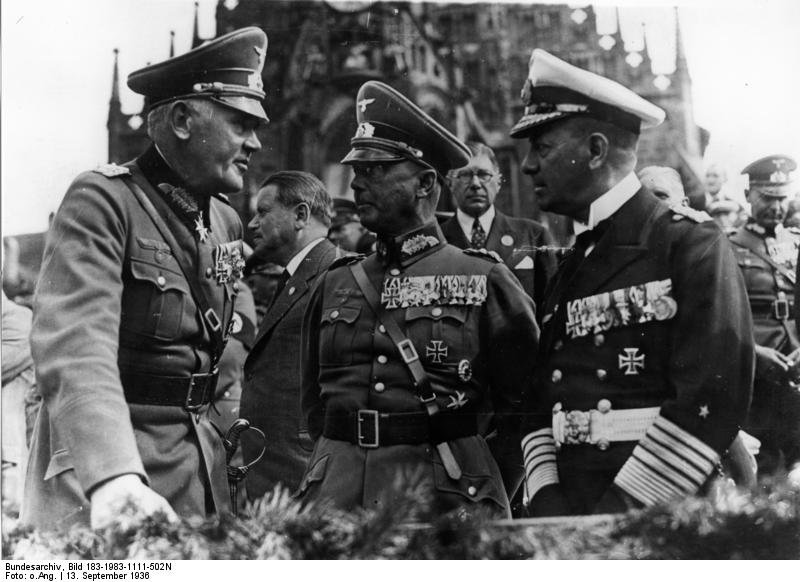 Left to right: Werner von Blomberg, Werner von Fritsch and Erich Raeder at the eighth party day in 1936. Source: Wikimedia Commons / Bundesarchiv.
Left to right: Werner von Blomberg, Werner von Fritsch and Erich Raeder at the eighth party day in 1936. Source: Wikimedia Commons / Bundesarchiv.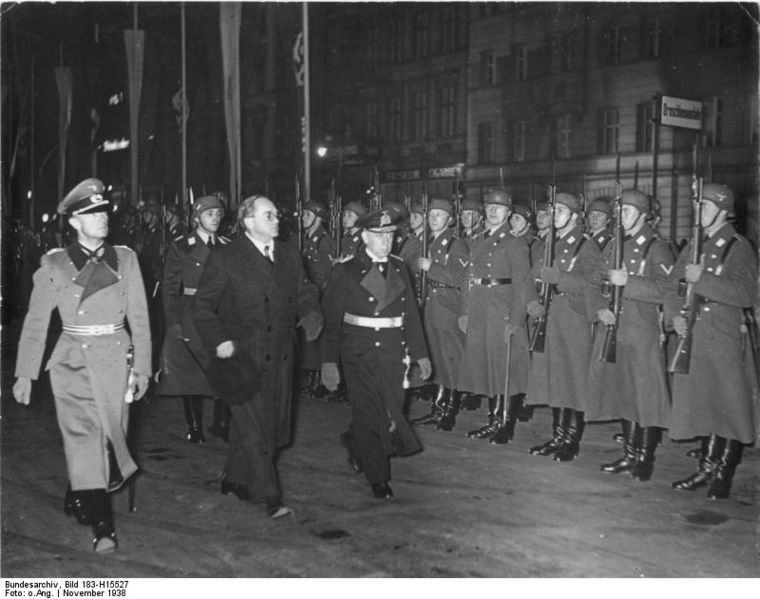 Canaris during a visit by the South African Minister Pirow to Berlin, 1938. The chief of the Abwehr is on the right of the minister. Source: Wikimedia Commons / Bundesarchiv.
Canaris during a visit by the South African Minister Pirow to Berlin, 1938. The chief of the Abwehr is on the right of the minister. Source: Wikimedia Commons / Bundesarchiv.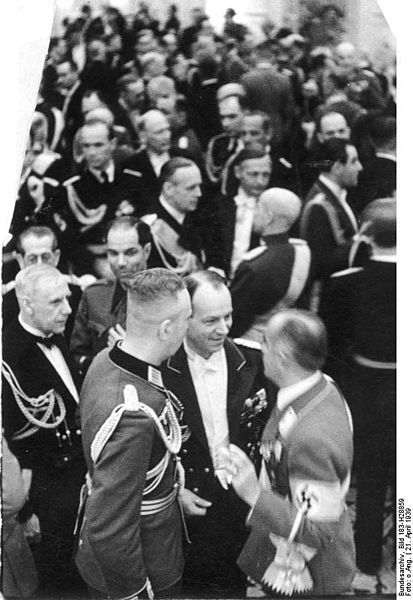 Canaris, on the left, is present in the Hotel Kaiserhof in Berlin on 21 April, 1939 at the celebration of Hitler’s birthday. Source: Wikimedia Commons / Bundesarchiv.
Canaris, on the left, is present in the Hotel Kaiserhof in Berlin on 21 April, 1939 at the celebration of Hitler’s birthday. Source: Wikimedia Commons / Bundesarchiv.The early years of the Second World War
Prelude to the war
Prior to the war, the Abwehr paved the way for the Anschluss (merger) of Austria with Germany. It also provided strong support to the SDP (Südetendeutsche Partei) of Konrad Heinlein, who aimed at merging the Sudetenland with the Third Reich.
In the meantime however Canaris also tried his utmost to prevent war at all cost. He knew very well that Germany would never be able to win it; according to him the economic and military means were lacking. He was indirectly involved in the planning of a coup d’état against the Hitler regime at the end of 1938, which would be carried out by high ranking officers including Ludwig Beck and his successor as chief of staff Franz Halder. Canaris promised his support and supplied weapons and explosives, he also provided intelligence to Halder. As England and France had agreed to Hitler’s demands by means of the Munich agreement (September 29th , 1938) preventing the war from breaking out, the coup was aborted.
The Munich conference assured Canaris and other military of the opposition that war had been temporarily averted. They decided that the time now had come to thoroughly prepare themselves for a large scale conflict. Canaris did not want this, but he understood that war was unavoidable and if it did break out, he would do anything in his power to make Germany win. From May 1939 onwards, over 1,300 agents carried out reconnaissance missions and sabotage operations in Poland.
When the invasion of Poland finally began on September 1st, 1939, Canaris was appalled by the atrocities committed by the SS and the Einsatzgruppen (Special Action Squads). These units murdered Polish civilians and Jews on a large scale. He once protested against these matters to Generaloberst Wilhelm Keitel personally, stating that: "A war can never be won without taking into account any thought of ethics." His protests fell on deaf ears however and he was told by Keitel that he had to accept the behaviour of the SS as they acted on behalf of the Führer and the Wehrmacht was not responsible. The only thing he could do was to collect incriminating material about the Einsatzgruppen (Einsatzgruppen Art.) and to urge the Wehrmacht to take action accordingly. He had a number of these reports delivered to the Vatican by middle men. By the way, Canaris never undertook anything against the war crimes committed in Eastern Europe by the Geheime Feldpolizei (secret field police) which was commanded by him.
War in the West
On January 1st, 1940, Wilhelm Canaris was promoted to Admiral. Canaris maintained contacts with the IRA and various other separist groups in India, Thailand and Irak. He hoped to trigger riots within the British empire through these contacts but at the end of the day, it did not lead to much.
In the meantime Hitler planned a large scale attack on the West (Fall Gelb, operation yellow). Canaris himself had little faith in that campaign beforehand and he considered it suicide. Moreover, he was not the only one to think that way. This led to new ideas about a conspiracy against the regime. The conspirators included the employees of the Abwehr Hans Oster, Hans Dohnanyi and Helmuth Groscurth and a number of officers, among them Franz Halder. These people had already been involved in the plans of 1938. As has been stated, Canaris is supposed to have said several times during this period: "There is not a second to be wasted, Hitler has to go."
Canaris visited the various military headquarters looking for supporters. One of the persons promising support was Generalobers Wilhelm von Leeb, commander of Heeresgruppe C (army group C), which was deployed opposite the French Maginot line. Most generals however shrank away from a coup as that would weaken Germany too much from the inside and make her easy prey for the Allied forces. Canaris and his associates tried to counter this problem by trying to get in touch with the British via the Vatican in order to come to an agreement should a coup d’état take place. This had little effect because the British for instance had little faith in the German resistance following the Venlo incident. Moreover, Halder withdrew from the conspiracy plans because of the limited support. Canaris therefor had to abandon his plan for a coup, which was a great disappointment to him. He lost his faith in the Wehrmacht generals and would abstain from making coup plans by himself for a long time. He kept protecting the conspirators within the Abwehr however. His role could be characterised as that of a passive leader of the plans.
In the end, Fall Gelb would become a huge success. The Abwehr also performed very well from a German point of view. The service lacked capable agents In France though, making it difficult to gather much concrete intelligence in advance but they succeeded very well in covering up the German plans of attack and make it look like as if the German main attack would be launched in Belgium. The Spezialeinheit Brandenburg (Brandenburg special unit), which was subordinate to Abwehr II in particular was successful. By cunning and misleading actions they succeeded in capturing important bridges and defensive positions in the Netherlands, Belgium and France. Many men of the Abwehr were decorated and Admiral Canaris was praised by the German supreme command as well as by Hitler himself.
Negotiations with Franco
In the period October – December 1940, Hitler made various efforts to draw Franco into the war. As Canaris had befriended the general, he was also involved in these negotiations. Discussions were conducted on subjects like the capture of French colonies by Spain and providing a free passage for the German troops to enable them to occupy the British base of Gibraltar. Although Franco made verbal promises to Hitler and indicated that Spain would indeed participate in the war at some time in the future, Franco himself knew that this would never be the case. Spain and her economy were too heavily dependent on the import of raw materials and food stuffs from America and Great-Britain and Germany was not able to take over this role. Moreover, Spain had hardly recovered from the recent civil war. Franco therefore could not plunge his country into a prolonged war. This would only be possible if England would be on the brink of collapse. He did inform Canaris accordingly.
Subsequently Canaris traveled to Southern Europe in order to mediate in the war between Italy and Greece. Canaris however did not succeed in bringing the two belligerents together, also because the Greek parliament was not willing to call an armistice. As a result, Germany launched an invasion of Greece on April 6th , 1941,(operation Marita).
Definitielijst
- Abwehr
- Term used for the German military intelligence unit during the WW1 and WW2. From 1935 onwards under command of Admiral Wilhelm Canaris. The organisation often came into conflict with other secret services such as the SD and the Gestapo. During World War 2 under Canaris frequently a source for conspiracies against the Nazi regime until in 1943 a major conspiracy by a number of prominent members of the Abwehr was discovered and the Abwehr was placed under command of Himmler. After the assassination attempt on Hitler in 1944, Canaris was discharged and the Abwehr was dissolved. The conspirators and Canaris were prosecuted and in 1945 they were executed atc oncentration camp Flossenburg.
- Anschluss
- The joining of Austria to Germany. The annexation of Austria by Nazi Germany on 12 March 1938. Austria became part of Greater Germany.
- Einsatzgruppen
- "Taskforces of Deployment Squads". Special units composed of various SS and police services under supervision of the Reichssicherheitshauptamt (RSHA). Einsatzgruppen were deployed during the invasion of Poland in 1939 and during operation Barbarossa in 1941. In 1939 these units were ordered to eliminate the Polish intelligentsia. In the Soviet Union they were deployed to execute various political and racial enemies of the Third Reich, like Jews, gypsies and communists. The "Holocaust by bullets" in the Soviet Union was the horrendous first act of the eventual "final solution".
- Führer
- German word for leader. During his reign of power Adolf Hitler was Führer of Nazi Germany.
- Heeresgruppe
- The largest German ground formation and was directly subordinate to the OKH. Mainly consisting of a number of “Armeen” with few directly subordinate other units. A Heeresgruppe operated in a large area and could number several 100,000 men.
- invasion
- Armed incursion.
- Jews
- Middle Eastern people with own religion that lived in Palestine. They distinguished themselves by their strong monotheism and the strict observance of the Law and tradition. During World War 2 the Jewish people were ruthlessly persecuted and annihilated by the German Nazis. . An estimated 6,000,000 Jews were exterminated.
- Maginot line
- French defence line along the French-German border.
- resistance
- Resistance against the enemy. Often also with armed resources.
- war crimes
- Crimes committed in wartime. Often concerning crimes committed by soldiers against civilians.
- Wehrmacht
- German armed military forces, divided in ground forces, air force and navy.
Images
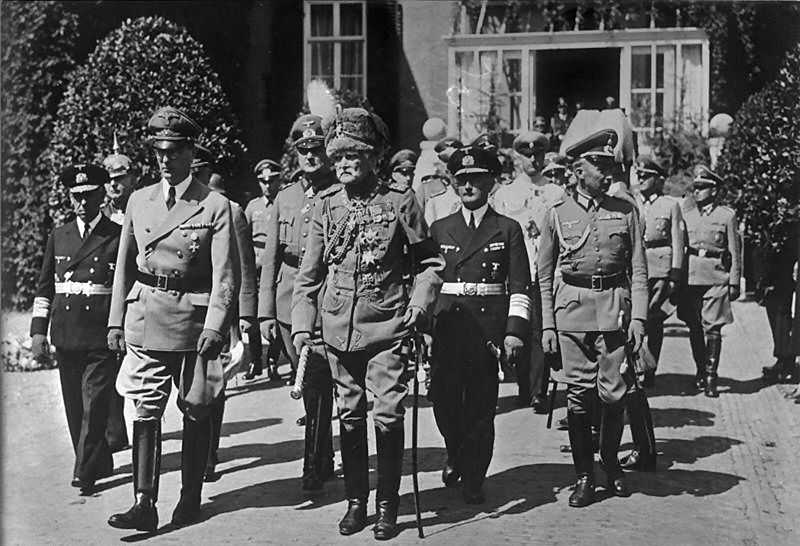 Canaris (far left) at the funeral of Emperor Wilhelm II in Doorn (The Netherlands), 9 June, 1941. The man in front on the left is Reichskommissar Seys Inquart (the Austrian State Commissioner for the Netherlands). Source: Wikimedia Commons / Bundesarchiv.
Canaris (far left) at the funeral of Emperor Wilhelm II in Doorn (The Netherlands), 9 June, 1941. The man in front on the left is Reichskommissar Seys Inquart (the Austrian State Commissioner for the Netherlands). Source: Wikimedia Commons / Bundesarchiv.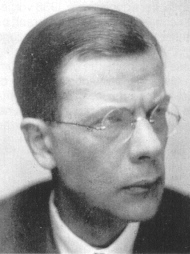 Abwehr employee and member of the resistance Hans von Dohnanyi. He was one of the men involved in attempt at a coup d’état in 1938 which was never carried out..
Abwehr employee and member of the resistance Hans von Dohnanyi. He was one of the men involved in attempt at a coup d’état in 1938 which was never carried out.. 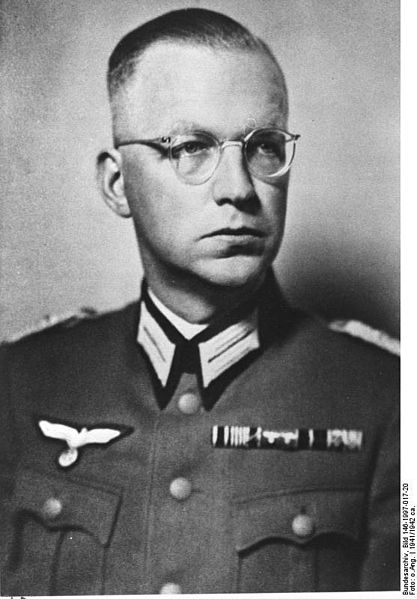 Helmuth Groscurth in 1941. He was also involved in the plot of 1938. Source: Wikimedia Commons / Bundesarchiv.
Helmuth Groscurth in 1941. He was also involved in the plot of 1938. Source: Wikimedia Commons / Bundesarchiv.Career at a dead end
Operation Barbarossa
Hitler was not happy with this operation in Greece by the way. He had already focused his attention on the East. According to him, the time had come to settle accounts with the Soviet-Union. Canaris fiercely resisted this plan. At a meeting of high ranking officers of the Abwehr he stated : "The German troops will bleed to death on the icy plains of Russia and after two years we won’t find a trace of them". He even tried to convince Hitler of this idea. Canaris was called a pessimist however.
Canaris did not have a well-established network of agents in the Soviet Union at his disposal, therefor he was not able to provide the intelligence required by the military staffs. After the signing of the German-Russian non-aggression treaty on 23 August 1939 (Pact 23-08-1939), Hitler had prohibited all activities of the Abwehr in the Soviet-Union. The German knowledge of the Soviet armed forces and the potential of the Soviet industry was vastly insufficient as a result. This was to have disastrous consequences later.
The Abwehr attempted to set up a campaign of disinformation, aimed at disguising the real objectives of the German armed forces. By spreading false rumors they hoped the enemy intelligence services would get the idea that an invasion of England would be the main objective of the Germans. It remains unclear what result this produced. Fact is that prior to Operation Barbarossa Joseph V. Stalin received numerous warnings about the imminent German attack. He ignored those warnings completely though.
When Operation Barbarossa was launched on June 22nd , 1941, the attack caught the Soviet forces completely off guard. Partly due to this, the German troops could advance with lightning speed and conquer large areas.
When Canaris learned what kind of violence accompanied the German advance, he protested against it. He was particularly shocked when he learned that personnel of the Abwehr had been involved in the planning of the assassination of 5,000 Jews by the Romanian secret service, early July 1941. By means of a letter, which had been drafted by Helmut James Graf von Moltke, a human rights lawyer working at the Amtsgruppe Ausland of the Abwehr, Canaris complained to Wilhelm Keitel. He argued that the German actions were in violation of international human rights. Keitel answered that in a war which was aimed at the extermination of an ideology, international law did not play a part.
Holocaust
The admiral’s attitude regarding the Holocaust is not entirely clear. A number of departments of the Abwehr was actively involved in the persecution of Jews, in particular the Geheime Feldpolizei mentioned before, which regularly assisted the Einsatzgruppen. Also, Canaris grew up in an anti-Semitic environment and a number of anti-Jew statements by him have been preserved. Moreover, some sources state that Canaris is supposed to have been an advocate of the introduction of the Star of David for the Jews to wear as identification. Heinz Höhne writes about this: "In 1935/1936 Canaris had proposed to identify the German Jews, by means of the Star of David, as special citizens who only possessed the rights of guests in the Reich." How big his role has been in the actual introduction of the Star of David as a means of identification, is not clear however.
Canaris himself also made a number of efforts to save Jews: the Abwehr had a some Jewish employees, which meant exemption from deportation. Canaris also assisted a number of Jews to seek refuge abroad, including Rabbi Joseph Isaac Schneersohn, who was able to flee from Warschau to the United States in September 1938 with the help of Canaris. The suggestion has been made to award Canaris posthumously with the Yad-Vashem decoration for this but no decision has been taken yet.
The downfall of a master spy
All this seemed to affect Canaris deeply. His colleagues found that he looked more and more worried. He made a tired, sloppy impression and started drinking and using drugs more and more. He seemed to increasingly lose interested in his work. This made him lose control of the Service and it made the department heads and later on also the other, junior agents just going their own way. The spies the service thought to have recruited in enemy territory were in reality mainly double agents working for the Allies. Many reports were also fabricated by department heads wanting to make the impression they had access to an important source, while in reality they had achieved nothing at all. The agents made themselves guilty of corruption on a large scale and some even took to smuggling stolen goods. Canaris did not step in, which caused the once so successful Service to decay rapidly.
In addition, the Abwehr was discredited by the SS. Heinrich Himmler accused Canaris of employing Jewish V-men and that with his approval Jews were assisted in escaping to ther countries. This has actually happened. (500 Jews had fled to South America with the assistance of Abwehr employees) but Canaris was able to convince Hitler that the accusations of the SS were all lies.
It is a fact though, that the quality of the Abwehr diminished strongly. As Canaris lost his grip and because he was fighting a shortage of manpower anyway, he was no longer able to provide accurate intelligence to the military staffs. Neither could the Abwehr cope effectively with the increasing Communist espionage in the Reich. The efforts of the Abwehr during the last years of the war demonstrated such a degree of incompetence, that high officers of the British secret service voiced the suspicion that Canaris was a Russian agent. This was not true though but it indicates the number of failures occurring in the service and what kind of impression this made. When the Abwehr failed to foresee the raid on Bruneval (February, 27th , 1942) and the invasions of North Africa (November 1942) and later on of Sicily (May 1943), Hitler and with him the generals of the Wehrmacht, lost almost all confidence in the organisation.
All this meant that competition between the Abwehr on one side and the SD and the Gestapo on the other side flared up again. Under pressure by Reinhard Heydrich Canaris had been forced in May 1942 to transfer a number of responsibilities in the sphere of counter espionage to the R.S.H.A., the umbrella organisation of the various secret police and intelligence services.
It has been said that by the end of 1941, Canaris made a renewed effort to get in touch with the Allied powers in order to sound out peace terms. The Allied governments however did not react; they would only accept the unconditional surrender by Germany.
Definitielijst
- Abwehr
- Term used for the German military intelligence unit during the WW1 and WW2. From 1935 onwards under command of Admiral Wilhelm Canaris. The organisation often came into conflict with other secret services such as the SD and the Gestapo. During World War 2 under Canaris frequently a source for conspiracies against the Nazi regime until in 1943 a major conspiracy by a number of prominent members of the Abwehr was discovered and the Abwehr was placed under command of Himmler. After the assassination attempt on Hitler in 1944, Canaris was discharged and the Abwehr was dissolved. The conspirators and Canaris were prosecuted and in 1945 they were executed atc oncentration camp Flossenburg.
- Holocaust
- Term for the destruction of European Jewry by the Nazis. Holokauston is the Greek term for a completely burnt sacrifice.
- ideology
- A collection of principles and ideas of a certain system.
- invasion
- Armed incursion.
- Jews
- Middle Eastern people with own religion that lived in Palestine. They distinguished themselves by their strong monotheism and the strict observance of the Law and tradition. During World War 2 the Jewish people were ruthlessly persecuted and annihilated by the German Nazis. . An estimated 6,000,000 Jews were exterminated.
- raid
- Fast military raid in enemy territory
- Soviet Union
- Soviet Russia, alternative name for the USSR.
- Wehrmacht
- German armed military forces, divided in ground forces, air force and navy.
Images
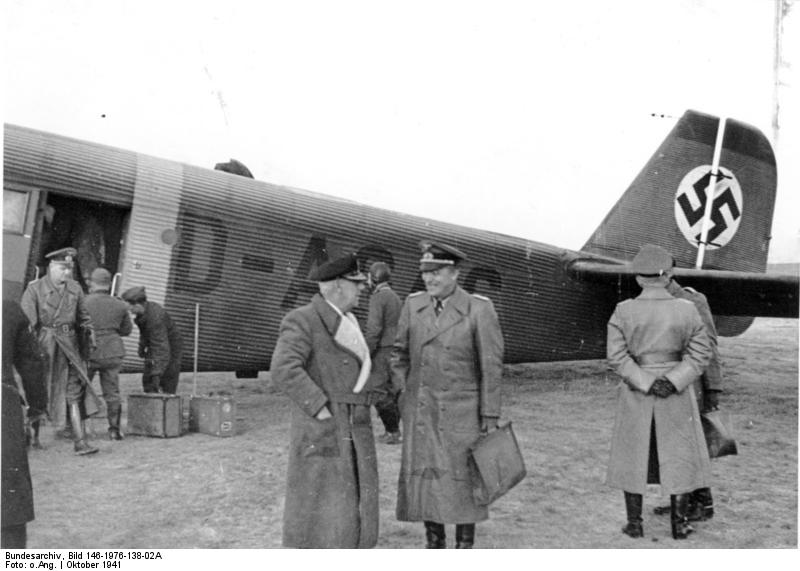 Canaris with Oberst Franz Eccard von Bentivegni (department head of the Abwehr) shortly before departure from an airfield at Smolensk in the Soviet Union, 29 October, 1941. Source: Wikimedia Commons / Bundesarchiv.
Canaris with Oberst Franz Eccard von Bentivegni (department head of the Abwehr) shortly before departure from an airfield at Smolensk in the Soviet Union, 29 October, 1941. Source: Wikimedia Commons / Bundesarchiv.Dismantling the Abwehr and dismissal
New attempt at a coup
The military resistance against Hitler increased in the meantime (early 1943). A group of young officers headed by Generalmajor Henning von Tresckow planned to assassinate Hitler and seize power. By eliminating Hitler they intended to end the two front war. They wanted to achieve this goal by reaching an agreement with the western Allies, so the war in the east could be continued.
The resistance group within the Abwehr also played an important part in this scheme. In preparation for the overthrow Admiral Canaris and his staff, among them Hans Dohnanyi, flew to Smolensk on March, 7th , 1943. Officially it would be a large meeting between the intelligence officers at the front. During these discussions however plans were made for a coup d’état. Codes for instance were agreed upon. The plan they made contained some serious flaws however. For example there was no clear plan of action regarding the isolation of the Wolfsschanze (headquarters of Hitler in Rastenburg, East Prussia) in order to prevent any counter measures to be initiated from there. The most important challenge for the conspirators was getting close enough to Hitler though.
Two attempts were made. The first one took place on March, 13th ,1943. A time bomb disguised as a bottle of liquor was smuggled aboard Hitler’s airplane. As the temperature during the flight was far below zero, the bomb did not explode. The next try was a suicide assassination. The plan was that Kolonel Rudolph-Christoph von Gersdorff would blow himself up during a visit by Hitler and other Nazi leaders to a weapons exhibition in Berlin. Hitler left the building earlier than expected however, which did not leave the colonel sufficient opportunity to explode the bomb. Efforts to assassinate Hitler were postponed for the time being, as there were no more opportunities.
Meantime at the R.S.H.A., suspicions had risen about the role of the Abwehr in the conspiracy. In April 1943, Dietrich Bonhoeffer and Hans von Dohnanyi were arrested. Hans Oster was under increasing suspicion as well and placed under house arrest.
Dismissal
On February 11th , 1944 Canaris was fired as chief of the Abwehr. The many mistakes that had been made, the defection to the Allies by an agent in Istanbul and the increasing amount of inaccurate intelligence were the main reasons. The definitive straw that broke the camel’s back however was a bomb attack which was carried out on a British freighter by an Abwehrkommando in Cartagena in Spain. Hitler had prohibited such attempts as they were detrimental to the relationship with the Spanish government. When he was told that nonetheless an attack had taken place again, he was outraged and he ordered Canaris to be dismissed and the department Ausland (intelligence abroad) of the SD and the Abwehr be merged into an umbrella secret service. Heinrich Himmler and Ernst Kaltenbrunner were charged with this operation (Kaltenbrunner was Heydrich’s successor who had been killed on June 4th, 1942, as a result of an attack by the Tsjech resistance in May 1942). All this would finally lead to a complete dismantling of the Abwehr from mid 1944 onwards.
After his dismissal Canaris was placed under house arrest in Lauenstein Castle in the Frankenwald. On March 10th, 1944 he was discharged from active service by Grossadmiral Karl Dönitz. It is remarkable that Canaris nevertheless was awarded the Deutsches Kreuz in Silber (German Cross in silver ) for services rendered.
In June 1944 Canaris was recalled into service, in the rank of Admiral zur Verfüging (admiral on stand-by) On 1 July, 1944, he was appointed chief O.K.W. Sonderstab für Handelskrieg und Wirtschaftliche Kampfmassnahmen (O.K.W. special staff for trade war and economic war measures, H.W.K.). This department had originally been created to fight the economic boycott of Germany by the Allies. In 1944 the HWK was hardly engaged in anything anymore because of the precarious situation Germany found itself in; its staff consisted of just a handful of people.
Definitielijst
- Abwehr
- Term used for the German military intelligence unit during the WW1 and WW2. From 1935 onwards under command of Admiral Wilhelm Canaris. The organisation often came into conflict with other secret services such as the SD and the Gestapo. During World War 2 under Canaris frequently a source for conspiracies against the Nazi regime until in 1943 a major conspiracy by a number of prominent members of the Abwehr was discovered and the Abwehr was placed under command of Himmler. After the assassination attempt on Hitler in 1944, Canaris was discharged and the Abwehr was dissolved. The conspirators and Canaris were prosecuted and in 1945 they were executed atc oncentration camp Flossenburg.
- mid
- Military intelligence service.
- Nazi
- Abbreviation of a national socialist.
- resistance
- Resistance against the enemy. Often also with armed resources.
- Wolfsschanze
- Headquarters of Adolf Hitler in East Prussia.
Images
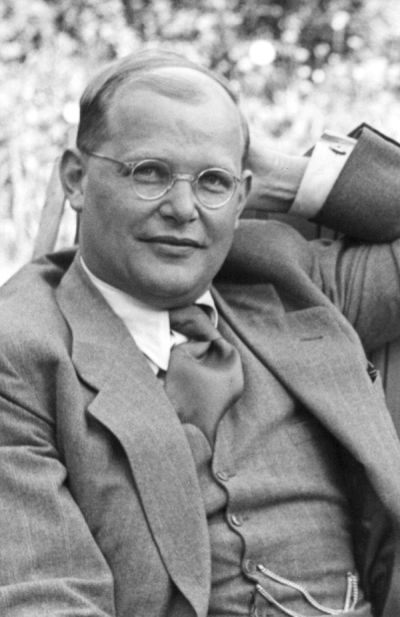 Theologist and member of the resistance Dietrich Bonnhoeffer. In April 1943 he and Hans von Dohnanyi were arrested by the Gestapo.
Theologist and member of the resistance Dietrich Bonnhoeffer. In April 1943 he and Hans von Dohnanyi were arrested by the Gestapo. 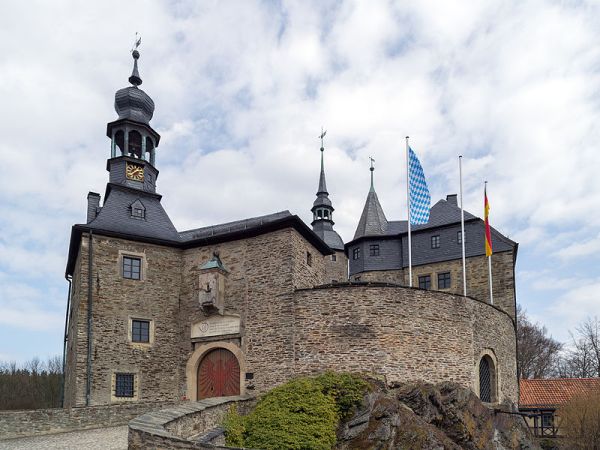 Lauenstein Castle in Bavaria. This is where Canaris was placed under house arrest after his dismissal in February 1944. Source: Wikimedia Commons / Bundesarchiv.
Lauenstein Castle in Bavaria. This is where Canaris was placed under house arrest after his dismissal in February 1944. Source: Wikimedia Commons / Bundesarchiv.Arrest and execution
Attempt on Hitler
After the downfall of Oster and his own dismissal from the Abwehr Canaris had lost all contact with the leaders of the military resistance. Early July 1944 he was informed about the intended attack on Adolf Hitler by Claus Schenk Graf Von Stauffenberg. He was not involved in the organisation itself however and he was unaware of the detailed planning of the coup. The new resistance members labeled him as being too conservative and too careful. As late as the afternoon of July 20th , 1944, he was informed that the attempt had taken place. Canaris saw almost immediately that Operation Valkyrie (Fall Walküre, the code name of the operation), was doomed to fail. A little after 18:00 he therefore offered his congratulations to Hitler for surviving the bomb attack. He also destroyed all incriminating material linking him to the resistance. In doing so, he hoped to evade prosecution.
During the investigation that was launched after the attempted murder and which was being directed by Gestapo chief Heinrich Müller, Canaris’ name soon popped up. On July 23rd , 1944, he was arrested by the chief of the Amt Ausland of the SD, Walter Schellenberg personally. After his arrest he was interned in the school of the Grenz-polizei (border police) in Fürstenberg. He was treated rather well there.
After Hans Oster, who had been arrested as well, had mentioned his name during an interrogation, Canaris was transferred to the R.S.H.A. prison in the Prinz Albrechtstrasse however. Here he was subjected to lengthy interrogations and the tough prison life. Canaris however was able to withstand the interrogations rather well. He managed to confuse his interrogators by insinuations and with lots of information which in the end appeared to be useless.
On September 22nd the Gestapo found, on indications by a snitch, the archives that had been kept by Von Dohnanyi and which strangely enough had never been destroyed. These documents contained data kept by Dohnanyi about the attempts for a coup in 1938 – 1940. They also found a number of copies of the diaries of Canaris in these archives. Canaris was adamant that he had only been indirectly involved in the plots and was able to provide an acceptable explanation of his actions. Despite many interrogations and torture – his prison rations were lowered to 1/3rd of the already meager quantity and he was hardly granted any sleep – he refused to confess. His interrogators gave up for the time being.
On February 5th , 1945, Canaris was transferred to concentration camp Flossenburg, together with a number of other conspirators. The freshly arrived prisoners were confined to the bunker in the camp, which was intended for special prisoners only. Müller ordered the suspects to be kept in irons at all times and not be allowed to have any contact with the outside world. Canaris is said to have been rather optimistic in these days. He presumed he would survive the downfall of the Third Reich and that he would be liberated by the Allies. However this did not happen.
Execution
Just one month before the end of the war, and very unfortunate for Canaris, an officer discovered his diaries by accident in a safe in the abandoned office of the Abwehr in Sossen, and notes on his trips to the front to win army commanders over to the coup against the regime. Up until that moment the RSHA had abstained from prosecuting the group around Canaris, as his involvement and that of the Abwehr in the coup against Hitler’s regime had been considered small and insignificant. However, with evidence of their conspiracy out in the open, an outraged Hitler ordered the execution of Wilhelm Canaris, Hans Oster, Hans von Dohnanyi (the most important conspirators within the Abwehr) and the reverend Dietrich Bonhoeffer who had also been involved in the plot.
Without a proper trial Wilhelm Canaris, Hans Oster, Karl Sack, Dietrich Bonhoeffer and Ludwig Gehre were sentenced to death on April 8th , 1945. The court consisted of SS members only; as an officer Canaris could only have been tried by a military court martial. After the verdict Canaris communicated briefly by means of knocking signals with a fellow prisoner, a Danish intelligence officer, who was locked up in the adjacent cell and who was to survive the war. His last words were: "Broken nose at last interrogation. My time is over. Was no traitor to my country. Have done my duty as a German. If you survive, send greetings to my wife." The statement: " Broken nose at last interrogation" Canaris most likely intended as a matter of speech, in reality that had not happened.)
The five condemned men were hanged in the early morning hours of Monday 9 April, 1945 in concentration camp Flossenburg. In order to humiliate them they were taken to the gallows naked. After the executions the SS members received a little bonus for their dirty work in the form of a schnapps and blood sausage. The bodies of the men were burned in the crematorium of the camp that same afternoon.
Definitielijst
- Abwehr
- Term used for the German military intelligence unit during the WW1 and WW2. From 1935 onwards under command of Admiral Wilhelm Canaris. The organisation often came into conflict with other secret services such as the SD and the Gestapo. During World War 2 under Canaris frequently a source for conspiracies against the Nazi regime until in 1943 a major conspiracy by a number of prominent members of the Abwehr was discovered and the Abwehr was placed under command of Himmler. After the assassination attempt on Hitler in 1944, Canaris was discharged and the Abwehr was dissolved. The conspirators and Canaris were prosecuted and in 1945 they were executed atc oncentration camp Flossenburg.
- concentration camp
- Closed camp where people are being held captive that are considered to be anti- social, enemies of the state, criminal or unwanted individuals. These groups mostly do not get a fair trial or are condemned to doing time in a camp.
- resistance
- Resistance against the enemy. Often also with armed resources.
- RSHA
- Reichssicherheitshauptamt. The central information and security service of the Third Reich.
Images
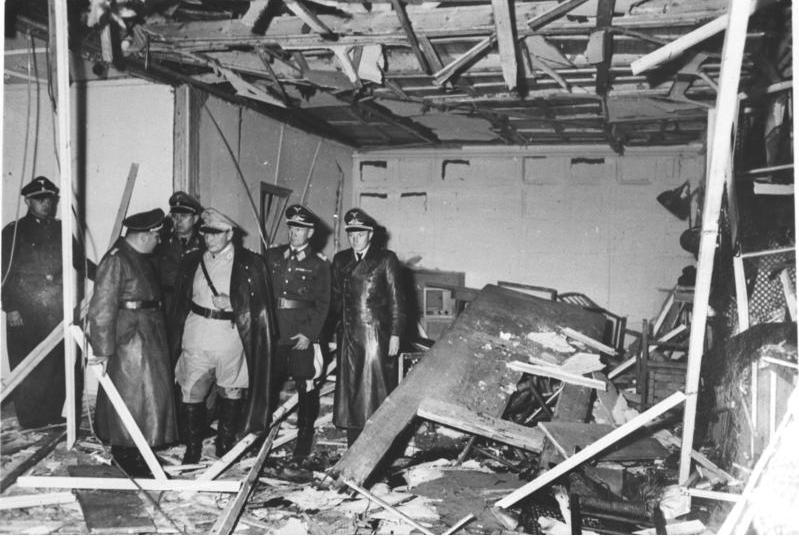 Hermann Göring and Martin Bormann inspect the damage in the chart room in the Wolfsschanze where Claus von Stauffenberg carried out his attack on Hitler on 20 July 1944. Source: Wikimedia Commons / Bundesarchiv.
Hermann Göring and Martin Bormann inspect the damage in the chart room in the Wolfsschanze where Claus von Stauffenberg carried out his attack on Hitler on 20 July 1944. Source: Wikimedia Commons / Bundesarchiv.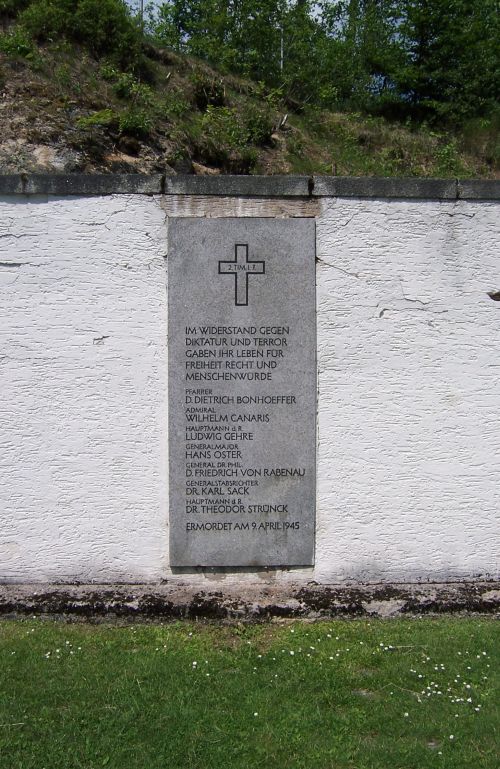 Plaque on the execution site in concentration camp Flossenbürg in memory of Canaris and other participants of the resistance against Hitler. Source: Wikimedia Commons.
Plaque on the execution site in concentration camp Flossenbürg in memory of Canaris and other participants of the resistance against Hitler. Source: Wikimedia Commons.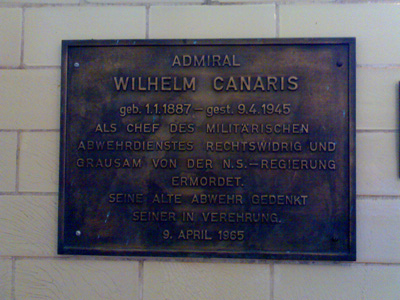 Memorial plaque for Wilhelm Canaris in the former concentration camp Flossenbürg. Source: Erik Mooij / Tracesofwar.com.
Memorial plaque for Wilhelm Canaris in the former concentration camp Flossenbürg. Source: Erik Mooij / Tracesofwar.com.Epilogue
Canaris certainly was a unique personality within the Third Reich and it can be said he played a dual role during the Second World War. On the one hand he did everything possible to win it and to that end, anything was permissible. On the other hand, he helped and protected people who wanted to overthrow the regime. In this respect he was an active helper of Hitler as well as his opponent. He might be considered to have been an opportunist; initially he supported Hitler when he promised he would reinstall the glory of Germany, but as he increasingly disagreed with Hitler’s military strategy, he started to resist him. This however would do little justice to Canaris as he had already been involved in an attempt to overthrow Hitler in 1938 before the war had broken out. Probably Canaris was not opposed against the war as such but rather more against the great influence of the party and of the SS and the disastrous consequences.
In recent years however, a transition in the way people write about Canaris is becoming apparent. British historian Max Hastings for example writes that Canaris, in his opinion, has received the status of hero of the resistance undeservedly. He characterises him as an opportunist who lacked both the moral courage to really oppose the Nazis whom he abhorred as well as the capabilities to run an efficient secret service in their interests. According to Hastings Canaris was not really good at delegating and he selected incapable employees. In his view, there actually is not a shred of evidence for the assumption that he actually attempted anything at all against Hitler. Canaris did mention treason but actually he did very little to stimulate this. He did not want to be a bad person, but according to the British historian, he lacked the courage to be a good human being.
Despite the many biographies we actually do know little about Wilhelm Canaris, the man. It is therefor always partly guesswork as to his real thoughts and personality. His diaries could probably help clarify this but they have disappeared after the war and whether they will ever turn up is doubtful.
Was Canaris a hero of the resistance, or was he, as Hastings states, only a incompetent servant of an evil Germany? Probably we will never know for sure. The deputy American prosecutor in Neurenberg, Robert Kempner, qualified him as follows: "On the one hand the man who organized the Nationalsocialist fifth column, introduced the murderous weapons of sabotage and infiltration and sent German soldiers on their way with orders to kill and on the other hand he allowed individual officers to conspire against the regime".
Definitielijst
- infiltration
- Quiet incursion into enemy lines prior to an attack.
- moral
- The will of the troops/civilians to keep fighting.
- resistance
- Resistance against the enemy. Often also with armed resources.
- strategy
- Art of warfare, the way in which war should be conducted in general.
Images
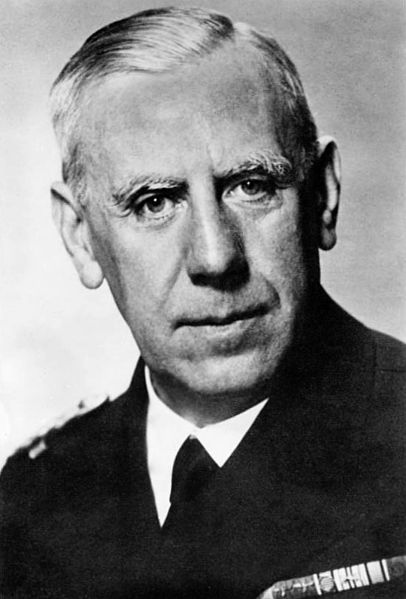 Wilhelm Canaris, 1940. Resistance member, supporter of Hitler or opportunist? Source: Wikimedia Commons.
Wilhelm Canaris, 1940. Resistance member, supporter of Hitler or opportunist? Source: Wikimedia Commons.Information
- Article by:
- Wesley Dankers
- Translated by:
- Arnold Palthe
- Published on:
- 19-01-2025
- Feedback?
- Send it!
Related sights
Related books
Sources
- BEEVOR, A., De Tweede Wereldoorlog, Ambo|Anthos, Amsterdam, 2012.
- HASTINGS, M., De geheime oorlog, Hollands Diep, Amsterdam, 2015.
- HöHNE, H., Admiraal Wilhelm Canaris, Amsterdam Boek, Amsterdam, 1978.
- KNOPP, GUIDO, Complot tegen Hitler, Omniboek, 2008.
- MOORHOUSE, R., Hitler: de aanslagen, Nieuw Amsterdam Uitgevers, Amsterdam, 2007.
